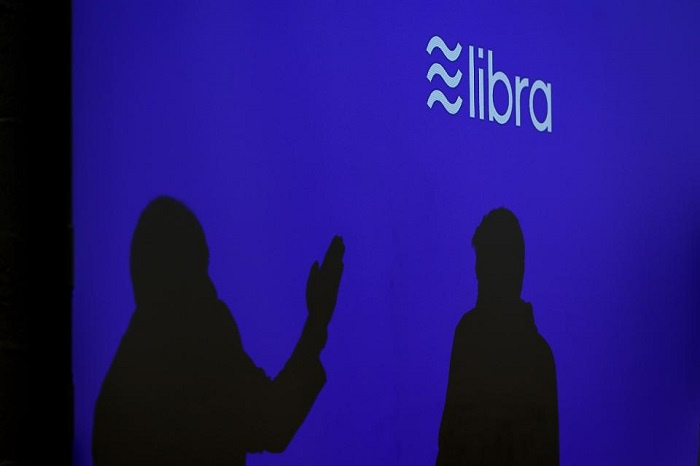Forbes: Libra is "better PayPal" but not a better cryptocurrency

Facebook's proposed global digital currency, Libra, is actually a "another" payment system that can be seen as a better enhanced version of PayPal, but it's important to note that compared to Bitcoin or other mainstream cryptocurrencies, Libra does. Unlike, it is not a "free currency."
Alex Karasulu, CEO and founder of OptDyn, commented on Libra, saying:
“Libra's blockchain is an authorized blockchain, which means that only authorized certifiers can process transactions on the network. The 100 corporate members of the Libra Foundation act as transaction verifiers, also indicating that they have been from the start. Cartels may cause problems for organizations outside the foundation, and may not even deal with Bitcoin supporters and encrypted anarchists."
- Is ETH changing from digital oil to digital currency, is this really feasible?
- Stable currency monthly report | USDC, DAI and other emerging stable currencies challenge USDT with DeFi scene?
- South Korea's blockchain company Iconloop receives $8 million in financing to build digital identity authentication services
(The Planetary Note: Cartel is an organization of independent companies that produce similar products, producers of collective action, with the aim of increasing the price of such products and controlling their production. According to US antitrust laws, cartels are illegal. In addition, companies that produce or sell a similar commodity acquire high profits for the monopoly market, and form alliances through agreements on commodity prices, production, and sales, such as monopoly interest groups, monopoly alliances, corporate alliances, and peers. The alliance, also known as cartel, is also one of the forms of monopoly organization.)
For those who truly believe in bitcoin and cryptocurrencies, Libra is not a currency that liberates transactions from the “centralized institutions”, which is obviously different from Bitcoin or other mainstream cryptocurrencies.
In addition, Libra is not a “safe haven” for investors who are concerned about fluctuations in the sovereign legal currency exchange rate, because Libra is supported by a basket of sovereign legal currency, that is, its value will be anchored by the central bank. The impact of long and related monetary policies.
In short, Libra lacks the “moral idea” of the blockchain. For most cryptocurrency proponents, Libra is empty, but there is no doubt that Libra has a certain amount of access because of the billions of users on Facebook and the 100 founding member platforms that use Libra to trade. Market Competitiveness.
At the same time, Libra will pose a threat to mainstream cryptocurrencies. Why do you say that? Because for most ordinary people, there is no particular concern about the difference between Libra and real cryptocurrency, many people may simply use Libra as a cryptocurrency.
Interview Technologies CEO Wayne Chen also acknowledged Libra's view on mainstream cryptocurrencies, saying:
“Libra's stability will have a compounded impact on the entire cryptocurrency industry, regardless of technology and derivative differences.”
The Libra Association is a cartel organization that, in addition to having a huge impact on the cryptocurrency community, may encounter more problems at the traditional financial and regulatory levels, such as national security, investor protection, and liquidity.
Not only that, Libra's emergence also poses a threat to the central bank, because it will break the central bank's monopoly on printing money, and may even manipulate the economy to meet the interests of powerful elites, which is why Libra is currently regulated, compliant and censored. One of the main reasons for many aspects of concern. There are more than 2 billion global users on the Facebook platform. If this “centralized” company issues a new digital currency, it will undoubtedly have unstoppable consequences.
Although Libra's future is still unclear, one thing is clear: Facebook's digital currency Libra will continue to be strongly criticized by cryptocurrency communities, governments, and traditional banks.
This article from Forbes , the original author: New York Post Campus of Long Island University (LIU Post) Chair of Economics and Professor Panos Mourdoukoutas
Odaily Planet Daily Translator | Moni
Original article, author: Moni.
Violation of the law will be investigated.
We will continue to update Blocking; if you have any questions or suggestions, please contact us!
Was this article helpful?
93 out of 132 found this helpful
Related articles
- Decentralized communications startup New Vector received $8.5 million in financing, intended to replace WhatsApp, etc.
- Overview of blockchain application cases: health care and energy industry
- Internal and external, Libra can seek hope in the crack
- A text saying that IPFS: What is the expectation of Filecoin?
- The judge made a favorable Bitfinex ruling and rejected the file request filed by NYAG
- Monthly Report | September Domestic and Foreign Blockchain Policy: Virtual Currency Mining Supervision Strengthens Legal Digital Currency Multi-Country Support
- Zuckerberg "Second Palace" attends the hearing Libra can break through the blockade






